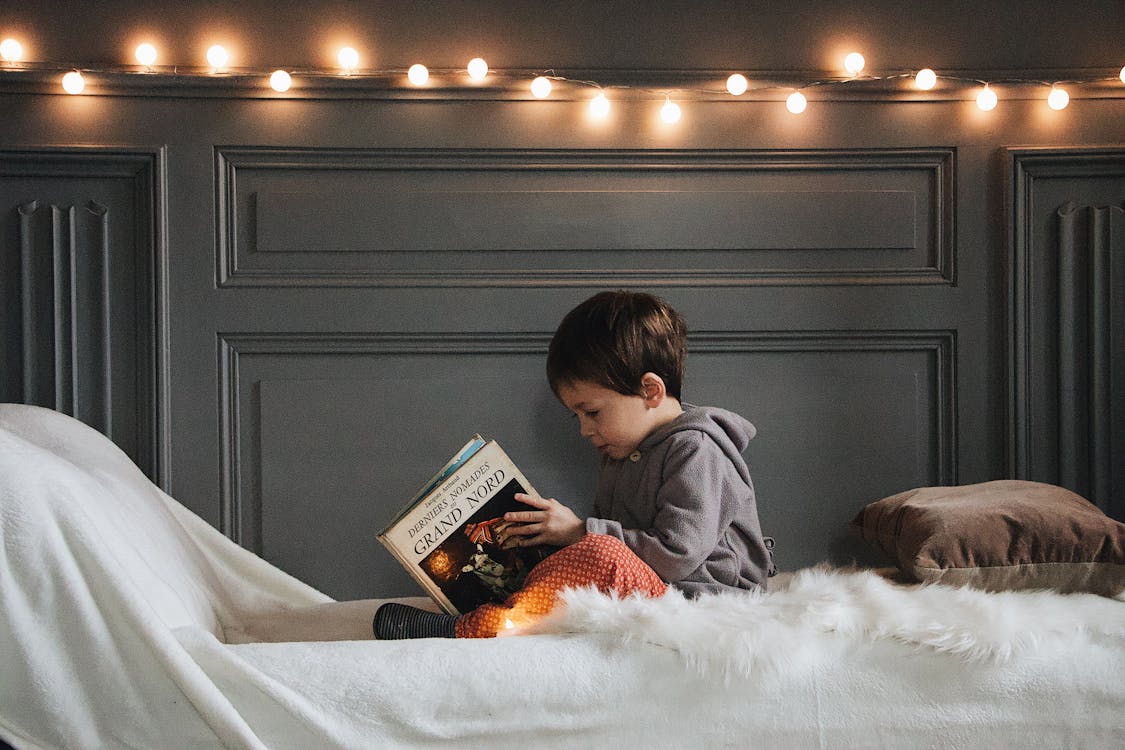Evening Self-Care Rituals to Unwind and Recharge for Better Sleep
In our fast-paced world, achieving a restful night’s sleep can often feel like a luxury. The pressures of work, family, and daily life can leave us feeling stressed and anxious, making it difficult to unwind and relax before bed. Incorporating evening self-care rituals into your nightly routine can significantly improve the quality of your sleep, helping you feel more refreshed and rejuvenated each morning. Here are some effective strategies to help you unwind and recharge for better sleep.
Understanding the Importance of Evening Self-Care
The Role of Self-Care in Sleep Hygiene

Self-care isn't just about pampering yourself; it's an essential part of maintaining your overall well-being. By dedicating time each evening to relax and decompress, you can create a conducive environment for sleep. Good sleep hygiene involves establishing a regular sleep schedule, creating a comfortable sleep environment, and practicing relaxation techniques.
Benefits of a Consistent Evening Routine
A consistent evening routine can signal to your body that it’s time to wind down. This helps regulate your circadian rhythm, making it easier to fall asleep and wake up at the desired times. Regular self-care practices can reduce stress and anxiety, leading to improved mental and physical health.
Effective Evening Self-Care Rituals
1. Mindful Meditation and Deep Breathing
Practicing mindfulness and deep breathing exercises can help calm your mind and prepare your body for sleep. Spend 10-15 minutes each evening focusing on your breath, allowing your thoughts to drift away. Apps like Headspace and Calm offer guided meditations specifically designed to promote relaxation and better sleep.
2. Gentle Yoga or Stretching

Incorporating gentle yoga or stretching into your evening routine can relieve muscle tension and promote relaxation. Poses such as Child’s Pose, Legs Up the Wall, and Corpse Pose can be particularly soothing. A short, 10-15 minute session can make a significant difference in how quickly you fall asleep and the quality of your rest.
3. Aromatherapy and Essential Oils

Aromatherapy can have a profound impact on your mood and stress levels. Scents like lavender, chamomile, and sandalwood are known for their calming properties. Consider using an essential oil diffuser in your bedroom or applying a few drops of essential oil to your pillow or pulse points before bed.
4. Reading a Book
Reading a book before bed can be a great way to unwind and disconnect from the digital world. Choose a book that is engaging but not overly stimulating. Avoid reading on electronic devices, as the blue light emitted can interfere with your sleep cycle.
5. Warm Bath or Shower
A warm bath or shower can help relax your muscles and prepare your body for sleep. The rise and subsequent fall in body temperature after a warm bath can signal to your body that it’s time to sleep. Consider adding Epsom salts or a few drops of lavender essential oil to your bath for added relaxation.
6. Journaling
Journaling can be an excellent way to process your thoughts and emotions before bed. Spend a few minutes each evening writing about your day, your feelings, or anything that is on your mind. This can help clear your mind and reduce anxiety, making it easier to fall asleep.
7. Limiting Screen Time
Reducing screen time in the evening is crucial for improving sleep quality. The blue light emitted by phones, tablets, and computers can disrupt your circadian rhythm and make it difficult to fall asleep. Aim to turn off all electronic devices at least an hour before bed.
8. Herbal Teas
Drinking a cup of herbal tea can be a soothing part of your evening routine. Teas such as chamomile, valerian root, and lemon balm have natural sedative properties that can help you relax and prepare for sleep. Avoid caffeinated beverages in the evening, as they can interfere with your ability to fall asleep.
Creating the Perfect Sleep Environment
Optimizing Your Bedroom
Your bedroom should be a sanctuary for sleep. Keep your bedroom cool, quiet, and dark to create the ideal sleep environment. Consider using blackout curtains, earplugs, or a white noise machine if necessary. Invest in a comfortable mattress and pillows that support your preferred sleeping position.
Establishing a Sleep Schedule
Maintaining a consistent sleep schedule is key to improving sleep quality. Try to go to bed and wake up at the same time every day, even on weekends. This can help regulate your internal clock and make it easier to fall asleep and wake up naturally.
Tips for Staying Consistent with Your Evening Routine

Setting Realistic Goals
Start by incorporating one or two self-care rituals into your evening routine and gradually add more as you become comfortable. Setting realistic goals can help you stay consistent and make your new habits more sustainable.
Being Patient with Yourself
It takes time to develop new habits and see the benefits of your evening self-care routine. Be patient with yourself and allow time for adjustment. Celebrate small victories and progress along the way.
Listening to Your Body
Everyone's needs are different, so it's important to listen to your body and adjust your routine accordingly. Pay attention to how different activities affect your sleep and overall well-being, and make changes as needed.
Conclusion
Incorporating evening self-care rituals into your nightly routine can significantly improve your sleep quality and overall well-being. By practicing mindfulness, engaging in gentle exercise, and creating a calming environment, you can unwind and recharge for better sleep. Remember, the key to success is consistency and finding what works best for you. Prioritize your self-care, and you'll reap the benefits of a restful night's sleep.

 Cricket Score Counter
Cricket Score Counter Heads or Tails
Heads or Tails
You have not logged in, please Login to comment.